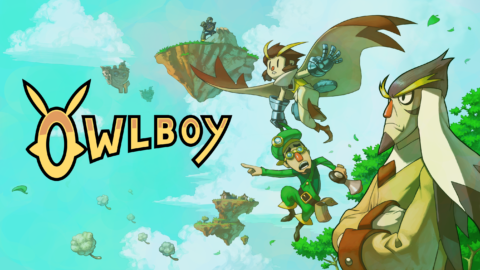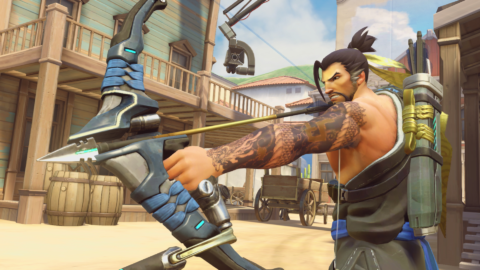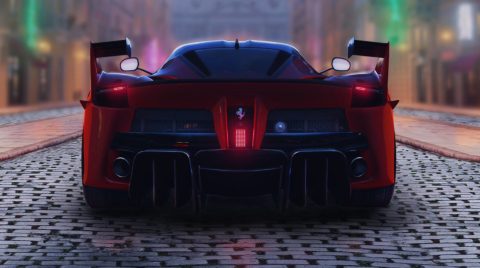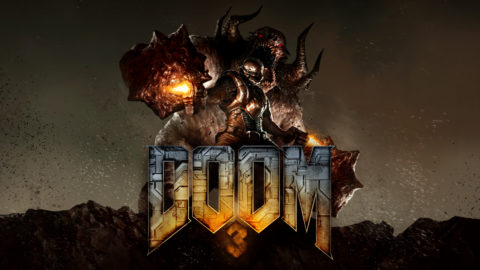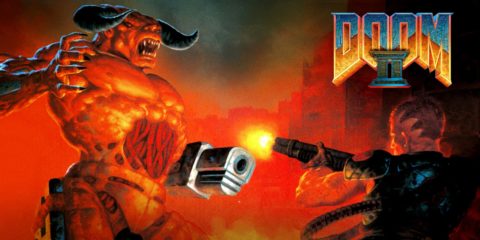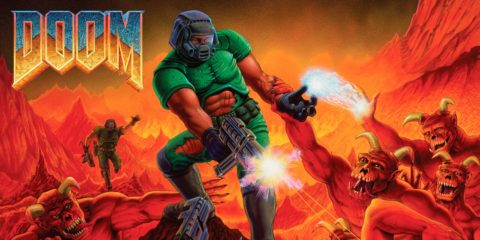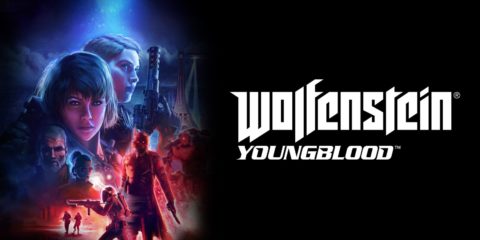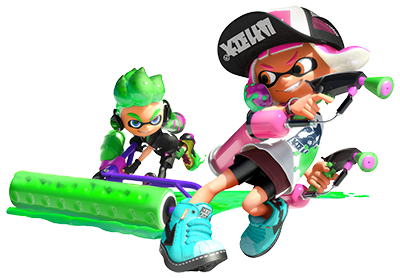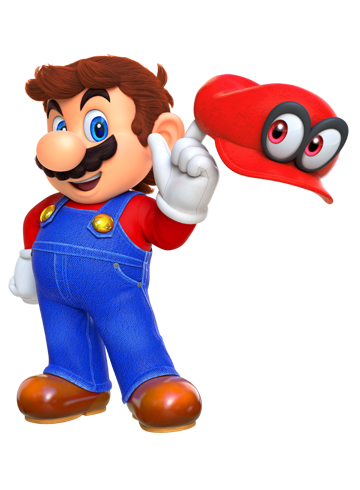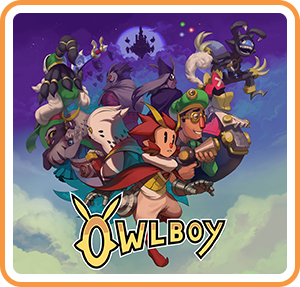
Indie darling Owlboy is so beautiful that it hurts.
It hurts not just because the game took nearly 10 painstaking years to create, but because it has varied offerings that don’t mesh well with its identity. It hurts because we’re witnesses to a mute boy’s struggle to do his best and his inability to defend himself. And most of all, it hurts because it feels as if Owlboy can cater to a wide variety of interests, but falls just a wee bit short of successfully pulling it off.
But not everything that hurts is bad and Owlboy is a testament to that. Thanks to DPad Studios’ dogged determination to finish the game despite its lengthy development, we’re blessed with a beautiful game that only years of love and hard work can produce. And because it’s now on the Switch, we can take that love anywhere with us.
Let’s fly, Otus.
Starring a mute young owl boy named Otus, Owlboy is a story of trying to prove your worth, friendship and saving the world. The game starts in an idyllic sky island called Vellie, and here we witness Otus go from being a promising successor to an outcast. The tutorial, hidden cleverly behind a sequence of events for context, teaches us everything we need to know about its controls: how to fly and how to grab or drop something.
It’s easy to love the game superficially with its incredibly detailed pixel art and equally detailed animation. It sets a visual standard that all retro-styled games should aspire to reach. Owlboy not only excels in making the environment look breathtaking, but it also succeeds in effectively conveying emotions in such a small space. Watching Otus’ face go from neutral to surprised is so magical – the detail of change in such a small space is amazing. And when he cries, it looks so convincing that you’ll want to reach into the screen just to hug and comfort him.
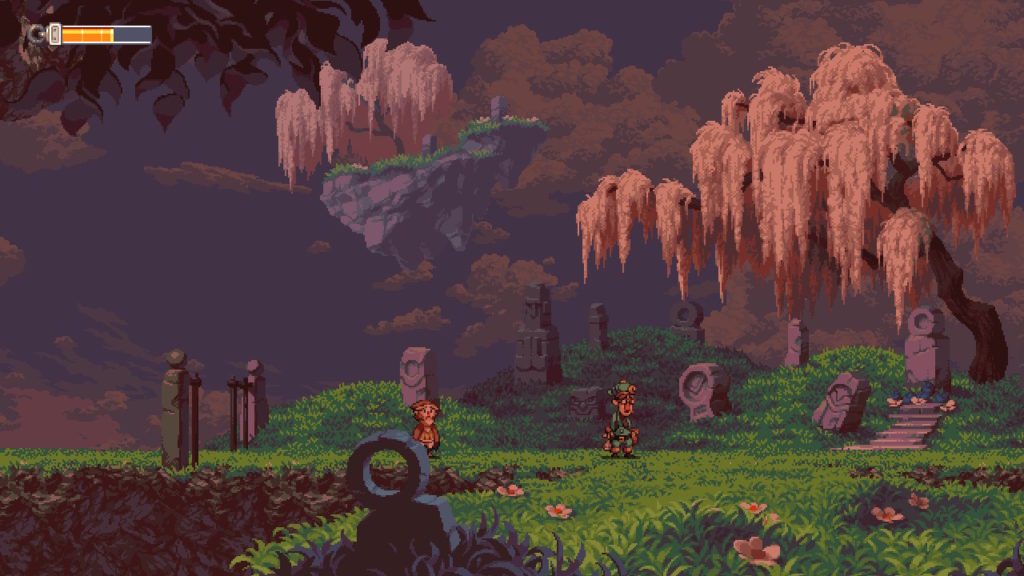
The game also has a very nice night-and-day cycle, which is almost wasted with the fact that you spend most of your time exploring caves and dungeons. Accompanied by a soundtrack that perfectly complements the visuals, it’s very soothing to watch the sky go from cheery bright daylight to the warm glow of the sunset, before finally settling into the starry night sky.
The more, the merrier.
Very early on, we get introduced to our first companion, Geddy. Companions are Otus’ way of defending himself – he carries them around one at a time while the companion uses their preferred tools. In Geddy’s case, he has a blaster that’s effective for dealing damage against enemies. Otus meets more companions later own, each with their own specialties that are essential to the journey. And you don’t have to worry about leaving them behind either: the game conveniently gives you an ability to seamlessly swap between companions on demand.
Armed with his owl cloak and a companion, Otus sets out to explore a cave in Vellie. This is where we first meet the game’s Zeldametroidvania aspect. Caves in Owlboy are sprawling and teeming with obstacles and monsters, with each blocked off section allowing for bite-sized explorations. In order to keep progressing through the cave, Otus must solve a simple puzzle or clear a small gauntlet in order to open the path.
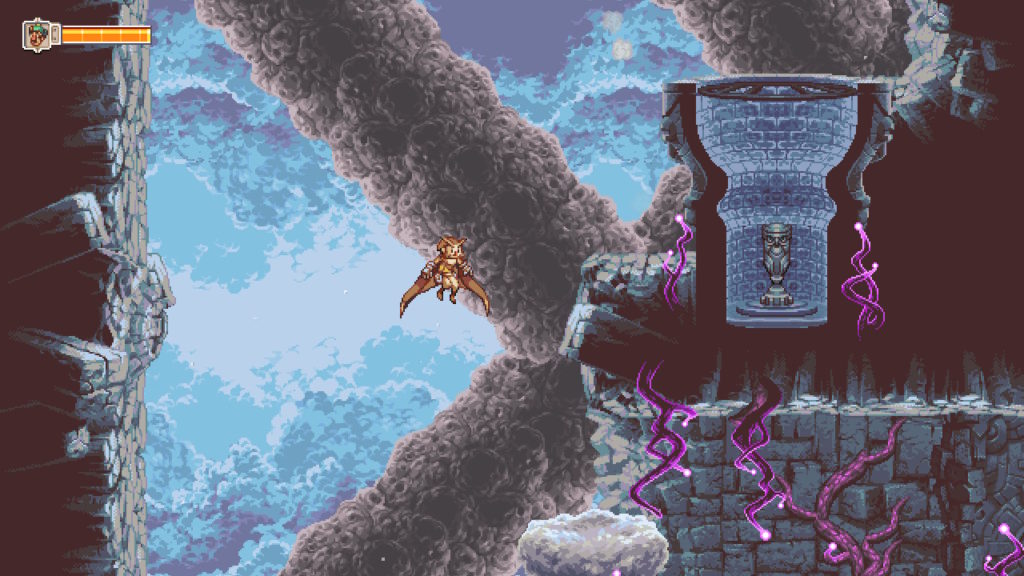
The simple nature of these puzzles ensures that no backtracking is ever required. Most of the time, Otus just needs to find a way to press a button or dislodge a rock in order to break the barrier. These menial puzzles are innocent at best and pointless at worst, simply existing there to prevent you from zooming through the area. But regardless of how you perceive the presence of these puzzles, their clever way of making you utilize different companions without demanding too much adds to its relaxed nature.
At the same time, this also means that once you clear a subsection, you almost never have to go back there ever again. This makes caves feel linear, especially if you’re not seeking out the hidden treasures. Cutscenes pause your stride every once in a while, but they’re simply there to keep the story going. Continue trucking along and you’ll eventually reach the end where an area boss awaits.
Turning things around.
Boss battles, on the other hand, are a bit of a mixed bag. The battles on the first half of the game are trivial, but they keep pace with the game’s relaxing nature so far. They’re heavily pattern-based so all you have to do is learn them and win. While not an absolute cakewalk, they at least provide a welcome change of activity from the usual flying and simple puzzle solving.
Once the second half of the game kicks in, the game suddenly changes its tone. Boss battles become more annoying but not difficult. Their patterns go quicker and their phases feel more tedious. They keep repeating and increasing the intensity of their attacks in a way that makes you say, “Yes I get it, enough already!”
It doesn’t help that whenever Otus gets hit, he has to bounce all over the wall first before finally falling face first on the ground. All of this is happening while the boss is merrily zipping its way all over the room, always offering a chance to juggle you back into being hit as soon as you get up. And when you do manage to get up without taking another damage, you have to consciously call your companion back again in order to get back into the fight. Just the act of being hit once during a battle becomes an exhausting mental juggling of different activities in a span of few seconds.
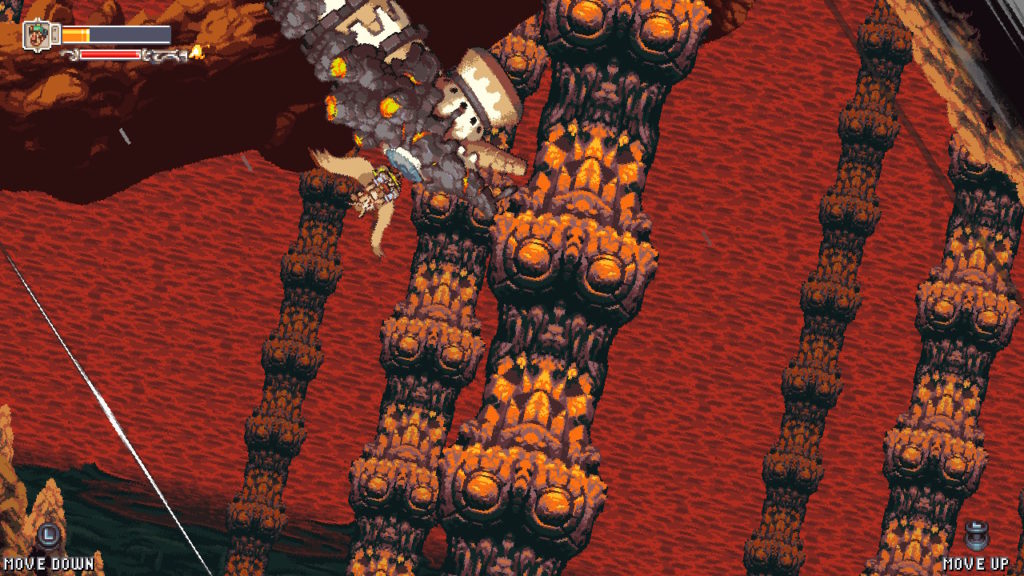
This is also when Owlboy tries to introduce other mechanics to shake up its current offering. From a disorienting underground worm ride to trial-and-error-based floating rock hopping, the games tries its best to give you something else to do. Some variations like stealth sections are a fun and welcome addition, but unfortunately, the others feel half-baked.
The forced platforming sections, for example, will see you fighting the controls in order to jump instead of flying. During these sections, there’s always a consequence to flying which leaves you no choice but to jump. But because the once intuitive key sequence for flying is the same for jumping (save for a minute difference), you’ll find yourself hoping that the controller interpreted your commands correctly. The frustrations will set in not because the section is a true challenge, but because it’s a clunky implementation.
It’s the home stretch.
In a way, Owlboy as a game is a lot like Otus. They both don’t say much, considering that the game would rather you discover its entire story by yourself. Both have a heart of gold, selflessly wanting to please everyone in order to fulfill their purpose. They’re both outspoken in what they want to do, always allowing people to form their own opinions about their abilities without contesting them too much.
But the most important thing to remember is that even though both Owlboy and Otus are innocently flawed, they are still trying their best. They might be missing the mark on some standards, but their determination to perform to the best of their abilities is the most valiant effort that anyone can ever witness. And that, I feel, is what makes Owlboy so beautiful.
Review Copy Provided By DPadStudio
